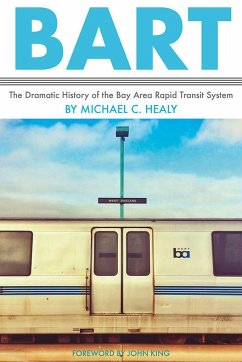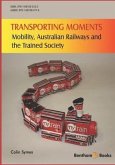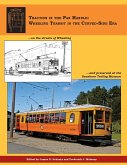When BART opened in the San Francisco Bay Area in 1972, it became a catalyst for a renaissance in modern rail transit, both nationally and internationally. The concept as sold to Bay Area voters was gargantuan: by adopting aerospace technologies such as microchips for ground transportation, the new computer-operated rail system would bridge counties and curb urban sprawl amid a booming automobile culture. But it all came within a gnat's eyelash of not happening. The question raised by pundits and taxpayers alike was: would this space-age plan actually work, or be the biggest boondoggle in the country's history? In the first-ever history book about BART, longtime agency spokesman Michael C. Healy gives an insider's account of the rapid transit system's inception, hard-won approval, construction, and operations, "warts and all." Written with a master storyteller's homey wit and sharp attention to detail, Healy recreates the politically fraught venture to bring a new kind of public transit to the West Coast. What emerges is a sense of the individuals who made (and make) BART happen. From tales of staying up until 3:00 a.m. with Bill Stokes and Jack Everson to hear the election results for the rapid transit vote or weathering scandals, strikes, and growing pains, this look behind the scenes of an iconic, seemingly monolithic structure reveals people at their most human-and determined to change the status quo.
Hinweis: Dieser Artikel kann nur an eine deutsche Lieferadresse ausgeliefert werden.
Hinweis: Dieser Artikel kann nur an eine deutsche Lieferadresse ausgeliefert werden.








